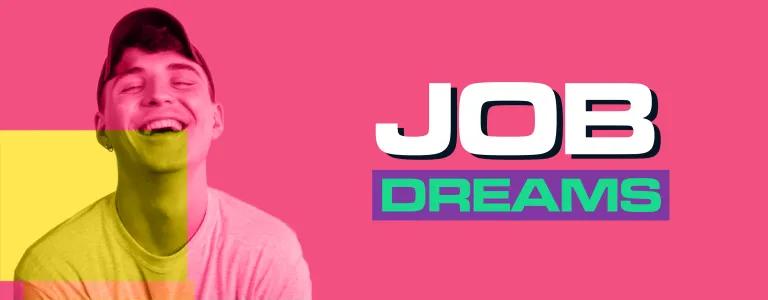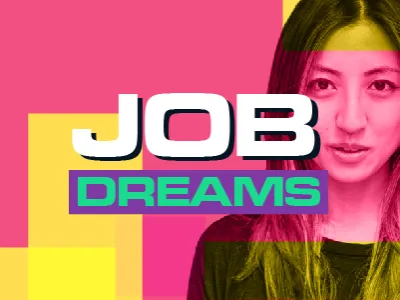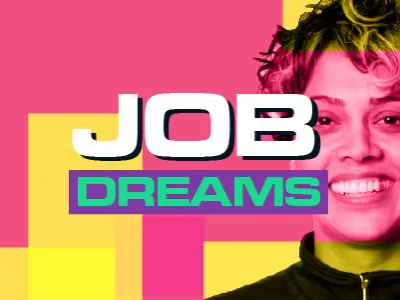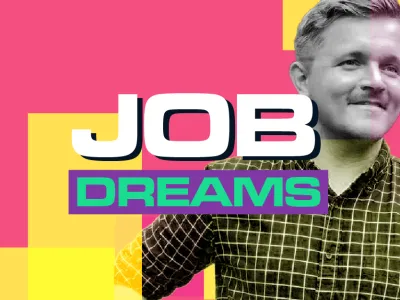
Client Engagement Manager, Joe
Include this article in your Skills Builder Journal. It could help you develop...![]()
In honour of LGBTQ+ history month, our latest Job Dreams shines the spotlight on a role that helps champion diversity and inclusion in the workplace. Joe, over to you.

What do you do?
I’m a client engagement manager at an inclusion company called INvolve. We specialise in delivering inclusion solutions that focus on LGBTQ+ identities, ethnic minorities and women.
Are there different types of inclusion jobs and organisations?
Within INvolve we have inclusion researchers, inclusion client managers, inclusion consultants, inclusion delivery managers etc. There are loads of organisations that focus on different protected characteristics; INvolve is quite unique in that we operate on an intersectional model and look at how each of the groups we work with intersects with each other.
Can you tell us what your day-to-day is like?
I manage relationships with our existing clients/potential new clients and help them figure out what the gaps in their diversity and inclusion strategy are. From there, our consultants and delivery specialists take over to deliver our various training, programmes and inclusion solutions.
What do you love most about your job?
It sounds so cheesy but I genuinely learn something new every day – since joining INvolve I’ve become more aware of how much internalised prejudice and bias I have that I was never fully conscious of.
What do you find most challenging?
When people find out you work in inclusion they sometimes like to play devil’s advocate about issues that you care very passionately about and impact your personal life.
Why do you think inclusion roles and organisations are still necessary?
Unfortunately homophobia didn’t disappear when same-sex marriage was legalised in the UK. We’ve moved into a time where racism, homophobia, transphobia is far less obvious than experiencing direct verbal and physical assault (at least, in the workplace).
It can be much more subtle, and half the time most of us won’t even realise that our actions are indirectly creating a hostile environment for diverse people. Inclusion solutions can help that!

What did you see yourself doing when you were a kid?
I was raised Catholic and when I was 13 I picked Saint Genesius as my confirmation name because he was the patron saint of clowns. He’s also the patron saint of lawyers though, so always had that as a back-up for Mum and Dad.
What challenges did you face in reaching where you are today?
I’ve experienced some road-blocks and worked at companies with homophobic bosses and cultures. But it’s never been a huge challenge in my work life mainly because as a middle-class cis white man I’ve had a lot more doors open for me.
If you weren’t in your current role, what do you think you’d be?
I did actually apply to clown school when I was 16 but I got rejected so I’m not sure.
Where do you see yourself going next?
My only confirmed next step is to do an MA in Queer Studies next year, focusing on how the current, quite rigid and categorical approach to diversity and inclusion in the corporate space can flex to accommodate the fluidity of queer identity.

What do you know now that you wish you’d known when you first left school?
Not being in the ‘popular’ group when you’re at school isn’t the end of the world, and for me was a blessing in disguise!
What advice would you give to someone interested in joining your industry?
Attend free networking events for different groups (LGBTQ+, ethnic minorities, women etc) and offer to join their committees by helping with digital Gen Z stuff (as much as millennials think we can do it, we can’t) and make connections from there.
What’s the best piece of professional advice you’ve been given?
Talk about your mental health more and often.
What quote do you live by?
“Don’t Get Bitter, Just Get Better.” - Alyssa Edwards




